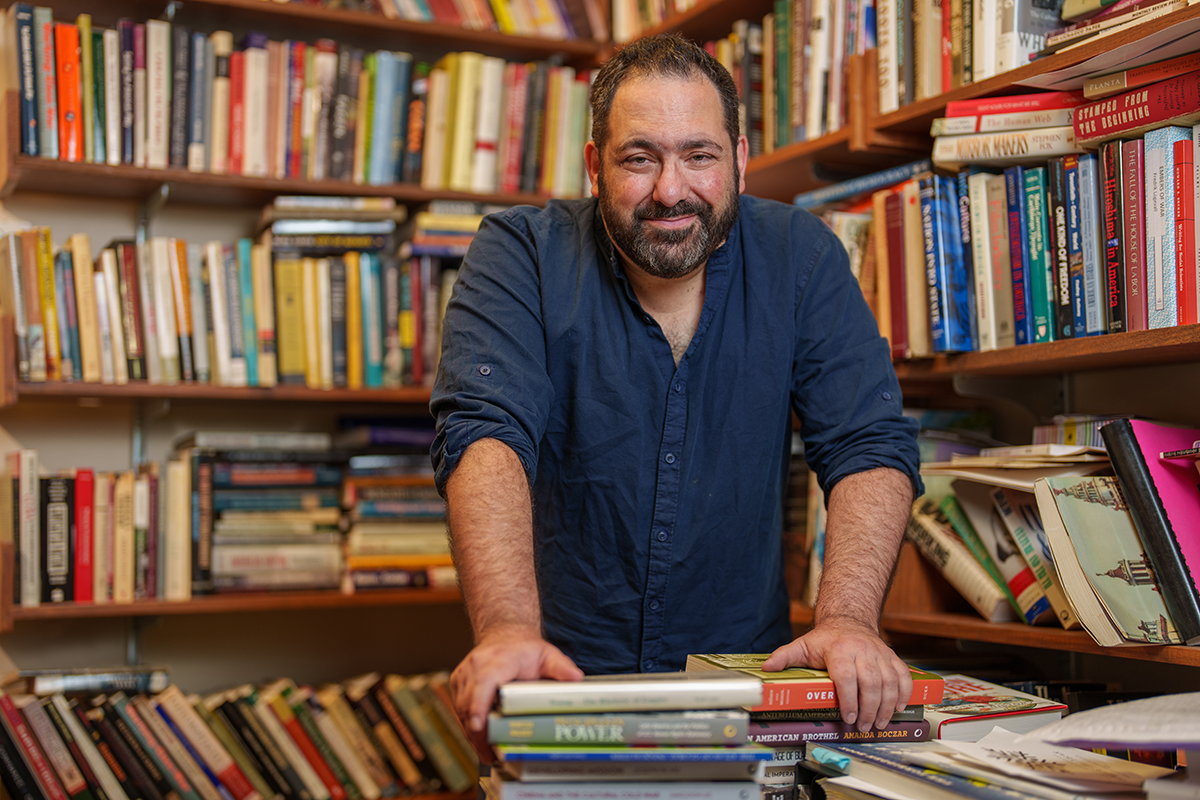
When Associate Professor of History Paul Kramer decided to speak out against the use of waterboarding by U.S. forces during the Iraq War, he took an unfamiliar approach. Rather than write an academic article directed only at his colleagues, he tried his hand at a historical narrative that would reach as wide an audience as possible.
That narrative—about a similar use of water torture by American soldiers during the invasion of the Philippines a century earlier—was eventually published by The New Yorker in 2008 as “The Water Cure.” It would be the first of many articles that Kramer has written, tackling headline issues, often indirectly, with historical narratives constructed through painstaking scholarly research.
In working with editors at widely read commercial magazines, as well as some of the world’s leading instructors in narrative nonfiction writing, Kramer has learned how to convey important social problems to broad audiences in a persuasive way. In fall 2018, he began sharing this knowledge with undergraduate students in his Writing for Social Change course, which explores the art and craft of social investigation and of narrative nonfiction writing.
Here Vanderbilt Magazine talks with Kramer about the course, in which students complete their own pieces of social reporting on issues that matter to them, and why this kind of writing is, as he says, “necessary for any kind of substantial democracy.”
What do you hope students learn in Writing for Social Change?
The main goal is to help them figure out what situations and issues in society they care passionately about and find themselves intensely curious about. Ideally, the course provides a place where social discovery and self-discovery cross into each other.
In terms of practical skills, the course focuses on how strong, vivid, compelling narrative nonfiction about society works, so students will be well-equipped to compose their own articles by the end of the class.
We read, analyze and discuss powerful works in this genre—some of them recent, some of them from further back in the historical past. And we discuss books and essays on writing by leading instructors and practitioners, including Mark Kramer and Roy Peter Clark, who have generously Zoomed into classes to field students’ questions and advise them on their projects.
We also work on essential skills like carrying out preliminary research, planning and conducting interviews, and revising drafts. These are all useful in a host of possible professional contexts. But I also hope they cultivate the arts of paying close attention, listening to others, being surprised and remaining curious about the social world.
How do you encourage civic discourse among students who may not agree on important issues?
From the start, I tell students that I don’t presume anything about their politics and values, that it’s both expected and valuable for them to differ with each other (and with me) on key issues. After all, if the genre we’re studying is about truth-telling, it’s also about persuasion. And arguably the best way to find out if you are doing your job here is to see whether you can engage successfully with someone who doesn’t see the world the way you do.
My hope is that I’m able to create an open, pluralistic and supportive environment by stressing that we’re all learners in the class, myself included. We’re learning about the bottomless mysteries of what language can do, and about the complex social worlds we’re living in. And in this, we’re all beginners, who can learn only by embracing intellectual modesty, openness and curiosity and engaging with other people, including by disagreeing with them.
What has surprised you about teaching this course?
I’m struck by the ways students find themselves paying closer attention to people and situations they usually take for granted. For example, one student was on pleasant, nodding terms with the security guard in her dorm. But then she decided to profile the guard for an assignment and soon found out she was an immigrant from Ethiopia who missed her home and family and checked in with them every few days by cellphone. And as the student got to know and befriend the guard, her own homesickness got easier.
The students are always teaching me just how rich and surprising our surrounding world is, how little of it we actually attend to and what can happen when we refocus on the very things we’ve been trained not to witness.
The course syllabus states that “… a democracy is only as expansive as the stories it tells itself about who belongs, on what terms, and what belonging entails.” On a smaller scale, the same could be true of Vanderbilt’s campus. How do you see that reflected in this course?
Students arrive on campus with a set of narratives—ones they’re aware of and ones they aren’t, ones they’ve inherited and ones they’ve invented—about who they are and how their society works. And they’re thrown in with other students who carry social stories that sometimes line up with theirs, and often clash. And they’ve got professors throwing still other narratives onto blackboards, some of which might help them steer their way through the rich but also bewildering world they are encountering and making.
In the case of my class, I’m hoping students come away with a sense of possibility and responsibility: a sense that while the stories we tell about society are forceful, they aren’t fixed. Our narratives have consequences for how we live together, so we have to take responsibility for them. We also have the challenging freedom—and deep responsibility—to tell stories different from the ones that we’ve been told.
Paul Kramer was interviewed by Seth Robertson, editor-in-chief of Vanderbilt Magazine.